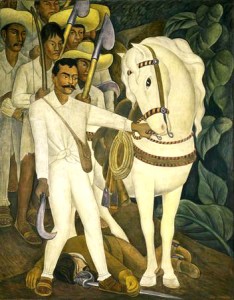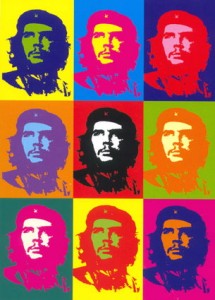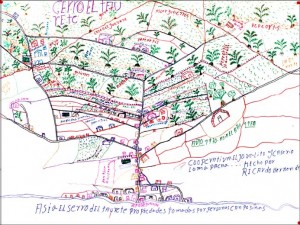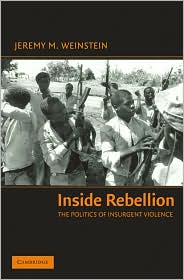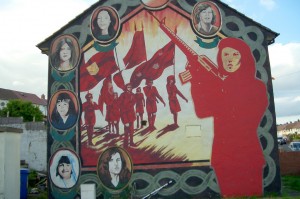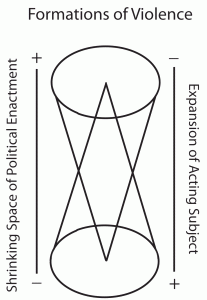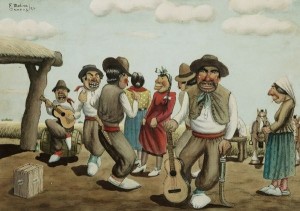 Coronil, Fernando and Julie Skurski, eds. 2006. States of Violence. Ann Arbor, MI: University of Michigan Press. [Ch. 1-3]
Coronil, Fernando and Julie Skurski, eds. 2006. States of Violence. Ann Arbor, MI: University of Michigan Press. [Ch. 1-3]
This brilliant collection edited by Fernando Coronil and Julie Skurski critiques one of the main stories that modernity likes to tell about itself: The rise of modern nations entailed the containment of violence through the monopolization of violence by the state. In fact, show the authors of these essays, the making and transformation of modern nations was—and continues to be—an incredibly violent process. “By illuminating the links between violent ruptures and the routine maintenance of order, [the essays] expand as much as they redefine the conceptual field within which political violence is viewed. Seen from this perspective, practices and discourses of violence, like currents that shape the ocean floor, sculpt social landscapes, imperceptibly chiseling their configuration and casting life chances” (3). Continue reading

